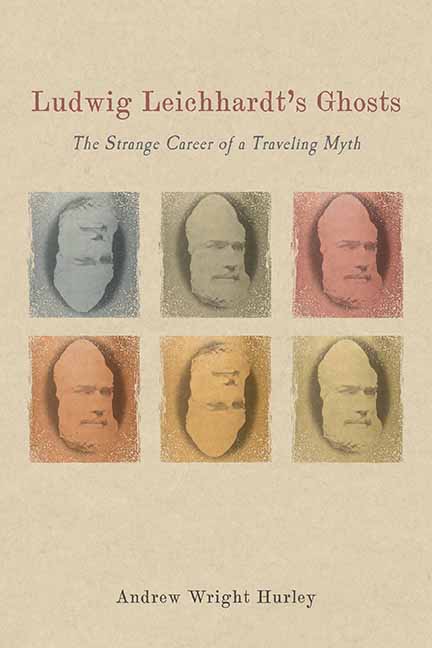Book contents
- Frontmatter
- Dedication
- Contents
- List of Illustrations
- Acknowledgments
- Introduction
- Part I Colonial Entanglements
- 1 Discovering, Mourning, and Honoring Leichhardt between Australia and German-Speaking Europe, 1848–1858
- 2 Ferdinand Mueller, the Ladies Committee, and German-Australian Seekers of Leichhardt
- 3 Taking Leichhardt Home to Germany with Georg Neumayer
- 4 Uneasily Approaching the Centenary
- Part II Colonial Memories
- 5 An Interwar Interregnum, or Finding Leichhardt as a “Friend of the Aborigine”?
- 6 Nazi Leichhardt
- 7 Leichhardt the Cold Warrior
- 8 Leichhardt Explodes, with No End in Sight (including a concluding passage “The Ghost of a Chance”)
- Notes
- Works Cited
- Index
8 - Leichhardt Explodes, with No End in Sight (including a concluding passage “The Ghost of a Chance”)
Published online by Cambridge University Press: 20 August 2020
- Frontmatter
- Dedication
- Contents
- List of Illustrations
- Acknowledgments
- Introduction
- Part I Colonial Entanglements
- 1 Discovering, Mourning, and Honoring Leichhardt between Australia and German-Speaking Europe, 1848–1858
- 2 Ferdinand Mueller, the Ladies Committee, and German-Australian Seekers of Leichhardt
- 3 Taking Leichhardt Home to Germany with Georg Neumayer
- 4 Uneasily Approaching the Centenary
- Part II Colonial Memories
- 5 An Interwar Interregnum, or Finding Leichhardt as a “Friend of the Aborigine”?
- 6 Nazi Leichhardt
- 7 Leichhardt the Cold Warrior
- 8 Leichhardt Explodes, with No End in Sight (including a concluding passage “The Ghost of a Chance”)
- Notes
- Works Cited
- Index
Summary
ONE MIGHT HAVE EXPECTED the late 1980s to be a high point in Leichhardt memory, not to be easily repeated, especially after a “definitive” biography by Colin Roderick and a “definitive” self-reflective literary treatment of his myth in Voss, and after the demise of the GDR in 1990, a state that had driven the culmination of twentieth-century efforts to functionalize Leichhardt, but also created space for a fabric of commemoration extending from an annual cross-country run to a specialist museum, and enabled grassroots identification with the Leichhardt story by way of private transcripts, the need for which evaporated with the state. Had he not become exhausted material, a little like he had been a century earlier, as reflected in A. B. Banjo Patterson's jaded poem “The Lost Leichhardt,” for example? Coming from another perspective, had not Leichhardt and his ilk become passé in an era of spatial and postcolonial history, not so much pioneers to be heroicized, but agents of white invasion to be reviled? But up he popped again, and not just on cue for his two-hundredth anniversary in 2013. From the wealth of Leichhardts who seem to have proliferated since 1990, I have isolated four partly overlapping bundles here: the champion of new causes from ecology to Indigenous-settler reconciliation; the historical figure in whose footsteps to tread; the local hero signifying possibility in economically depressed regions; and—most significantly—several new Indigenous Leichhardts.
One important Australian context for some of the new Leichhardts was the revisionism that took place during the so-called “history wars,” when historians and politicians used the colonial past in increasingly partisan ways, either to address the Great Australian Silence by attending to “the other side of the frontier,” or conversely to triumphantly underline white Australian pioneering achievements and shore up against anxieties about white presence and tenure, rendered pressing by Land Rights claims, and especially by the 1992 Mabo decision, when the High Court of Australia overturned the legal fiction of terra nullius and recognized native title. Overlapping this all was also the notion of Indigenous-settler “reconciliation,” which was on many Australian lips—at least non-Indigenous ones—during the 1990s and beyond.
- Type
- Chapter
- Information
- Ludwig Leichhardt's GhostsThe Strange Career of a Traveling Myth, pp. 195 - 222Publisher: Boydell & BrewerPrint publication year: 2018



